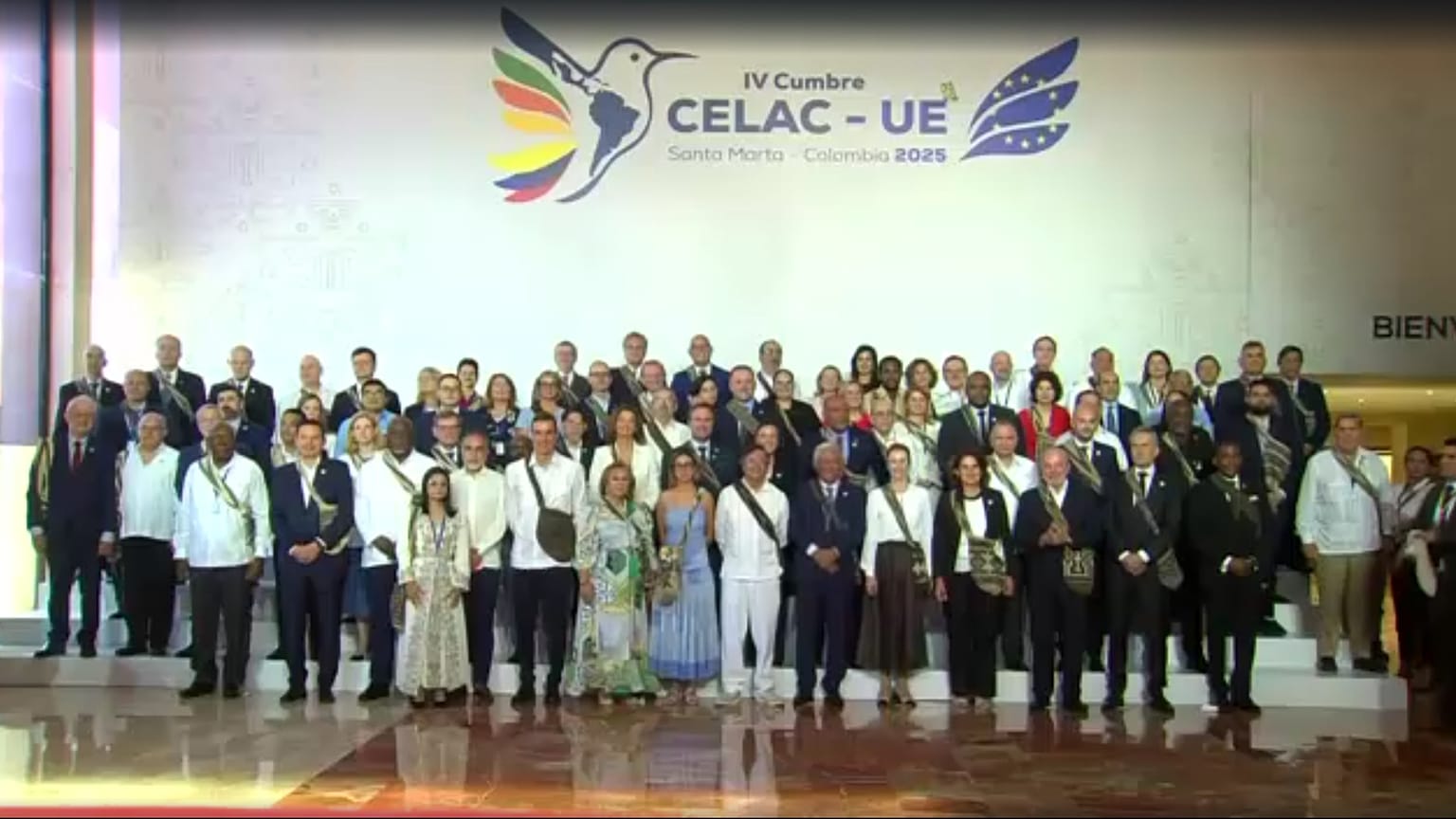Politics
EU Leaders Urge Respect for International Law Amid US Naval Strikes

The fourth summit of the Community of Latin American and Caribbean States (CELAC) and the European Union (EU) commenced on March 15, 2024, in Santa Marta, Colombia, with a focus on recent United States military actions against alleged drug-smuggling vessels. EU leaders, including foreign policy chief Kaja Kallas, expressed concerns over these operations, which have reportedly resulted in the deaths of 69 individuals.
Kallas emphasized the EU’s commitment to uphold international law, stating that the use of force is only justified in cases of self-defence or under a resolution from the United Nations Security Council. This statement came in response to the ongoing US strikes in the Caribbean and Pacific regions, which have raised significant ethical and legal questions.
During the summit, Dutch Prime Minister Dick Schoof called for the restoration of calm in the Caribbean Sea. He urged leaders to collaborate in reducing tensions and ensuring that regional stability is prioritized. The importance of this dialogue is underscored by the potential for increased conflict if military actions continue without a clear legal basis.
Mexico’s Secretary of Foreign Affairs, Juan Ramon de la Fuente, reiterated his country’s stance on national sovereignty, asserting that Mexico aims to respect the rights of nations to self-determination. De la Fuente’s remarks reflect a broader concern among Latin American nations regarding the impact of US military interventions in the region.
According to US Defense Secretary Pete Hegseth, the United States has conducted 14 strikes since September 2023 on vessels near the Venezuelan coast and in the eastern Pacific Ocean, targeting suspected drug trafficking operations. The US government has faced backlash, particularly from Colombian President Gustavo Petro, who has referred to the fatalities as “extrajudicial executions.” Petro has identified at least one victim as a Colombian citizen, raising further alarm regarding the implications of US military actions for regional citizens.
The two-day summit aims to strengthen ties between European, Latin American, and Caribbean nations amidst growing divisions over the US military strategy. However, the significance of the gathering has been called into question due to the absence of key leaders, including European Commission President Ursula von der Leyen and German Chancellor Friedrich Merz. Their absence may have diminished the summit’s potential impact, leaving many to wonder how effectively these nations can address the pressing issues at hand without senior representation.
As discussions continue, the focus remains on finding a diplomatic resolution to the tensions surrounding US military operations in these waters, and the leaders at the summit are tasked with navigating a complex landscape of international law, national sovereignty, and regional security.
-

 Top Stories2 months ago
Top Stories2 months agoTributes Surge for 9-Year-Old Leon Briody After Cancer Battle
-

 Entertainment4 months ago
Entertainment4 months agoAimee Osbourne Joins Family for Emotional Tribute to Ozzy
-

 Politics4 months ago
Politics4 months agoDanny Healy-Rae Considers Complaint After Altercation with Garda
-

 Top Stories3 months ago
Top Stories3 months agoIreland Enjoys Summer Heat as Hurricane Erin Approaches Atlantic
-

 World4 months ago
World4 months agoHawaii Commemorates 80 Years Since Hiroshima Bombing with Ceremony
-

 Top Stories2 months ago
Top Stories2 months agoNewcastle West Woman Patricia Foley Found Safe After Urgent Search
-

 Top Stories4 months ago
Top Stories4 months agoFianna Fáil TDs Urgently Consider Maire Geoghegan-Quinn for Presidency
-

 World4 months ago
World4 months agoGaza Aid Distribution Tragedy: 20 Killed Amid Ongoing Violence
-

 World4 months ago
World4 months agoCouple Convicted of Murdering Two-Year-Old Grandson in Wales
-

 World4 months ago
World4 months agoAristocrat Constance Marten and Partner Convicted of Infant Murder
-

 Top Stories3 months ago
Top Stories3 months agoClimbing Errigal: A Must-Do Summer Adventure in Donegal
-

 Top Stories3 months ago
Top Stories3 months agoHike Donegal’s Errigal Mountain NOW for Unforgettable Summer Views









